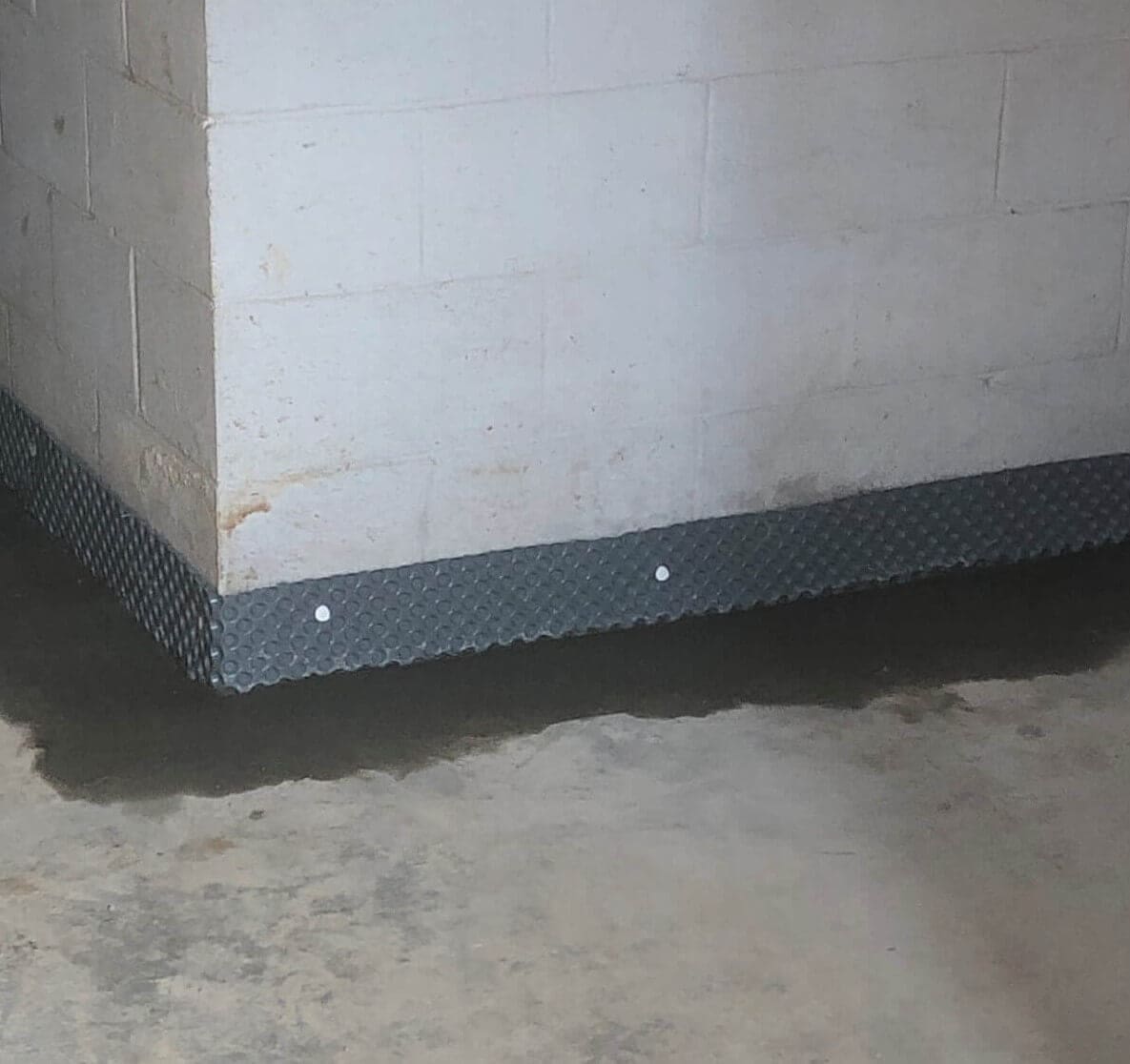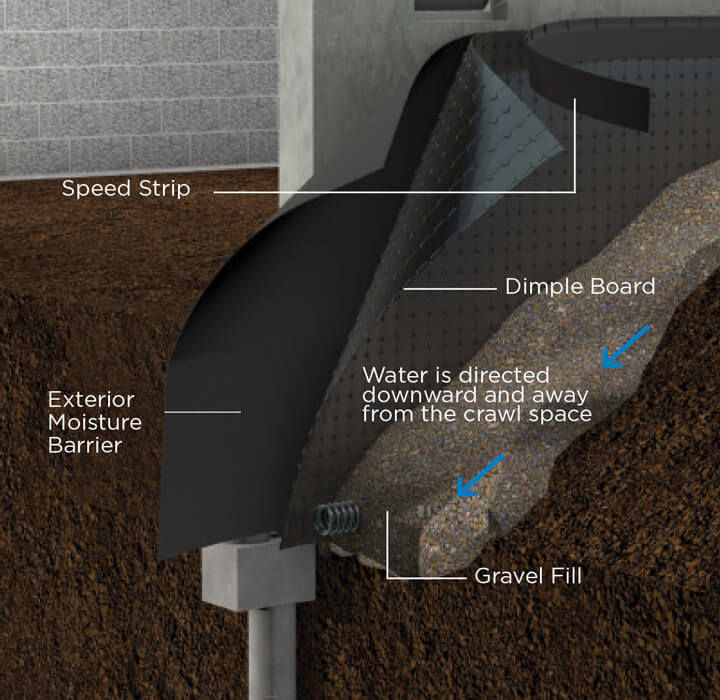The 5 Best Water Solutions for Wet Basement Problems
Wiki Article
Exploring the Different Techniques of Cellar Waterproofing and Their Benefits
Cellar waterproofing is crucial for preserving a completely dry and secure atmosphere. Different approaches exist, each with distinctive advantages. Interior sealers shield versus moisture invasion, while outside systems resolve water drainage concerns. Sump pumps and French drains pipes take care of water efficiently, and dehumidifiers control moisture degrees. Recognizing these options can assist house owners make educated decisions. Yet, the right option commonly depends on specific conditions and demands. What factors should one take into consideration when picking the finest strategy?Interior Sealants: An Effective Obstacle Against Wetness
Interior sealers serve as an essential line of protection versus dampness breach in basements. These products are made to develop a water-proof barrier on floors and wall surfaces, efficiently preventing water from leaking in. Available in different types, consisting of coverings, sealers, and paints, they can fill cracks and pores in concrete, ensuring a much more safe and secure environment.The application process normally entails cleaning the surfaces to eliminate dust and particles, followed by the careful application of the sealer. Once cured, these products improve the longevity of the basement while reducing moisture levels, which can bring about mold development and structural damage.Moreover, indoor sealants are commonly simple to use and can be a cost-effective service for property owners looking to minimize moisture issues. By supplying a trustworthy layer of protection, they play an important function in securing the cellar space, protecting both its stability and use.Exterior Waterproofing Systems: Protecting Your Structure
When home owners look for to shield their foundations from water damages, exterior waterproofing systems provide a durable service. These systems typically include using water resistant membranes and drain systems to the exterior walls of a cellar. By developing a barrier against groundwater, they effectively prevent moisture from passing through the foundation (Water Solutions Omaha).One notable advantage of outside waterproofing is its capability to attend to the source of water intrusion prior to it reaches the inside. This proactive strategy not only safeguards structural stability but additionally improves the longevity of the home.Moreover, outside systems can enhance the general drain around the structure, minimizing hydrostatic pressure. This minimizes the opportunity of fractures and heaving that can result from water build-up. Because of this, home owners can appreciate a completely dry, stable basement atmosphere, considerably enhancing home worth and comfort. Ultimately, outside waterproofing systems are an important financial investment in preserving a healthy and balanced home foundation
Sump Pumps: Managing Water Accumulation Successfully
Sump pumps play a crucial duty in managing water build-up in basements, supplying an effective service for homes vulnerable to flooding or excess moisture. These devices are mounted in sump pits, normally situated at the most affordable point of a basement, where they accumulate water that permeates in from the bordering dirt. When the water degree increases, the sump pump turns on, effectively draining the excess water to a designated drainage area, thus protecting against prospective damages to the structure and interior spaces.There are two main kinds of sump pumps: completely submersible and stand. Completely submersible pumps are installed underwater, making them less noticeable and often quieter, while stand pumps are positioned over the sump pit and are much easier to maintain. By efficiently handling water build-up, sump pumps not just secure versus architectural damage but also add to a much healthier living setting by minimizing humidity levels and preventing mold and mildew development.French Drains: Rerouting Water Far From Your Home

Dehumidifiers: Lowering Humidity Levels for a Drier Environment
Basement waterproofing involves various approaches, and dehumidifiers play a considerable role in maintaining a completely dry atmosphere. By efficiently reducing humidity degrees, dehumidifiers help protect against dampness accumulation, which can bring about mold growth, architectural damages, and undesirable smells. These devices work by removing excess moisture from the air, creating a healthier and more comfortable space.In enhancement to boosting air high quality, dehumidifiers can boost the efficiency of other waterproofing methods, such as sealing and water drainage systems. They aid preserve perfect moisture degrees, generally in between 30% and 50%, which is important for avoiding condensation on wall surfaces and floors.Moreover, modern dehumidifiers are energy-efficient and featured attributes like programmable settings and automatic shut-off, making them user-friendly. Overall, incorporating a dehumidifier into basement waterproofing prepares provides an essential layer of protection versus moisture-related concerns, consequently protecting the home's honesty.Regularly Asked Questions

The Length Of Time Do Waterproofing Solutions Commonly Last?
Waterproofing remedies typically last in between 5 to twenty years, depending upon the approach utilized, high quality of materials, and environmental problems. Normal upkeep and evaluations can assist expand their effectiveness and overall life expectancy.Can I Waterproof My Basement Myself?
The private considered whether Water Solutions to water resistant the basement independently. They discovered that while DIY options exist, expertise of techniques and products is necessary to guarantee effectiveness, and specialist support may provide better long-term outcomes.What Are the Signs of Cellar Wetness Issues?
Indicators of cellar moisture problems consist of noticeable water spots on wall surfaces, musty smells, peeling paint, mold growth, and dampness on floorings. High humidity degrees might additionally show underlying wetness troubles needing focus to stop additional damages.How Much Does Basement Waterproofing Cost?
The cost of cellar waterproofing varies widely, commonly varying from $1,500 to $5,000. Elements influencing expenses include the seriousness of moisture problems, the picked approach, and the geographical location of the residential property.Will Waterproofing Increase My Home's Worth?
The inquiry of whether waterproofing enhances a home's worth typically emerges amongst home owners. Normally, reliable waterproofing can boost building allure, alleviate damages dangers, and potentially bring about greater resale rates, depending on the local genuine estate market. By developing a barrier versus groundwater, they effectively prevent dampness from permeating the foundation.One noteworthy advantage of outside waterproofing is its capability to deal with the source of water intrusion prior to it reaches the interior. Sump pumps play a necessary duty in handling water accumulation in cellars, providing a reliable option for homes vulnerable to flooding or excess moisture. When the water level climbs, the sump pump turns on, successfully pumping out the excess water to an assigned drain location, therefore preventing possible damages to the foundation and indoor spaces.There are two main types of sump pumps: submersible and stand. Water Solutions Omaha. By guiding groundwater and surface area water away from the structure, French drains assistance stop water accumulation in cellars and creep spaces, lowering the threat of architectural damage and mold and mildew growth.Installation usually happens around the border of the home, making certain that water is efficiently drawn away. Indicators of basement dampness issues include visible water stains on wall surfaces, musty smells, peeling off paint, mold and mildew growth, and moisture on floorsReport this wiki page